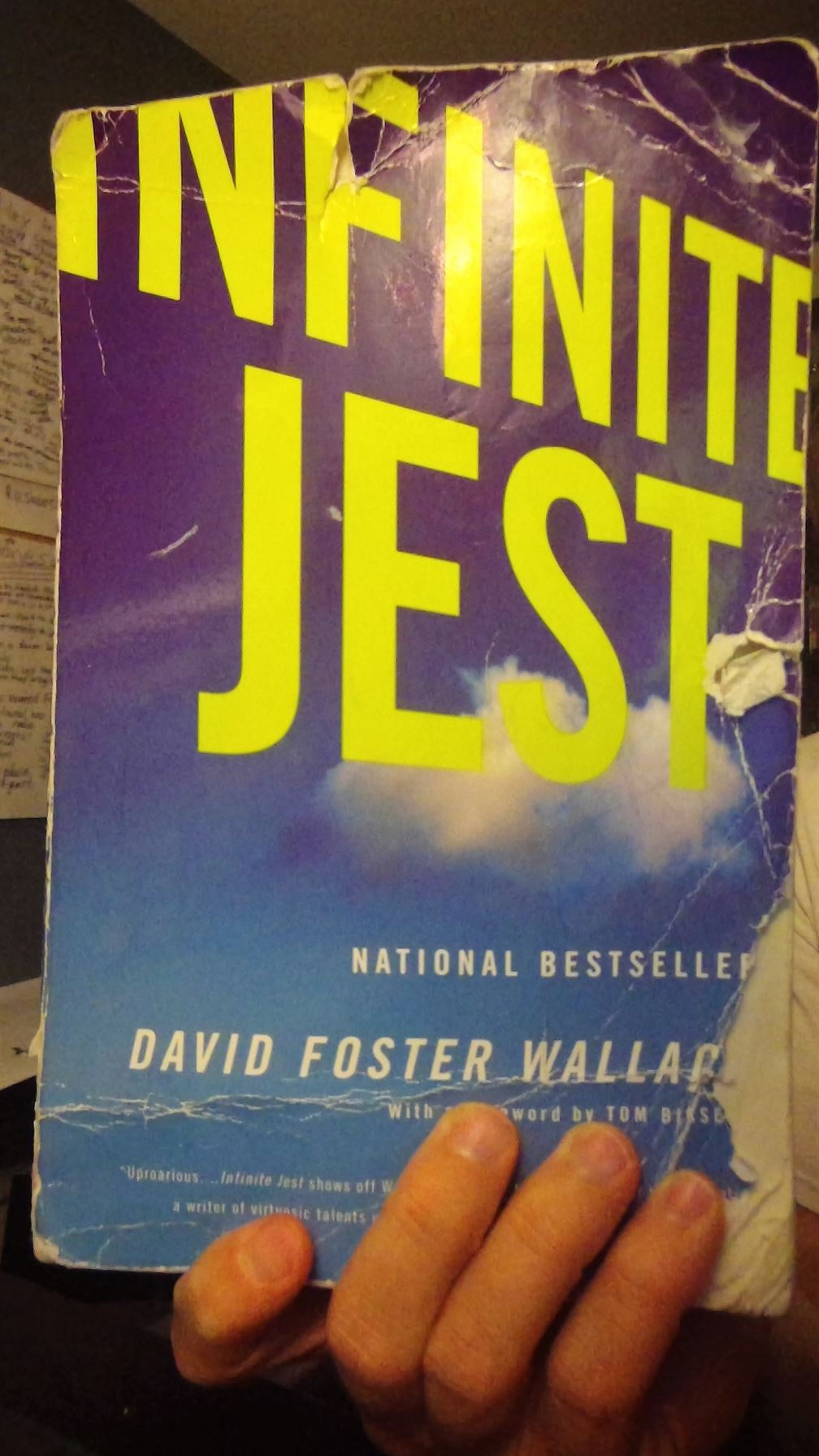There are moments in life when you read something that seems as if it was written just for you. Those are the stories we call “timeless” and hold infinite weight in our lives. “Infinite Jest” by David Foster Wallace did that for me.
Wallace wrote a hilarious story, but in its hilarity masks the serious questions it poses to its readers. Some say the book is about addiction, suicide, depression, interfacing with your children, living in the present and knowing your own flaws. However, I feel like that’s an overcomplicated look at a writer who prided himself on being an “every man.”
The literature is tough to read at first, but after stripping away the hard work it takes to read it, the plot becomes so simple.
The story is about a young prospective tennis player named Hal Incandenza, but the book becomes a larger web of plotlines and characters that stretches from Alcoholics Anonymous recovery homes to Canadian wheelchair assassins.
The book’s complexity, along with its long sentences and unique words, is only a farce. At the heart of the novel is a story that wants the reader to ask simple questions the book asks, including: Why read this book in the first place?
Having this mammoth-sized book displayed for others to see is like someone watching “Rick and Morty” because they’re smart. Reading the book made me feel dumb, which is not why I read the book in the first place. I thought I was smart, aware and free but my ego was shattered after reading “Infinite Jest.”
The book challenges the situations I related to and also personally challenged me. This was crippling in the reading process because I felt interrogated by Wallace.
Wallace asks the reader “Why?” It’s vague, but in the context of a story it makes perfect sense. When a character does something the reader doesn’t fully understand they ask “Why?” Normally, the writer knows this will be asked and gives the answer a few chapters later.
Wallace takes this idea and expands on it. He makes the reader ask why throughout the entire book, but at the end of it he doesn’t answer the question.
There are plenty of articles that tell you about how the book acts as the thing it warns about, a soul-consuming piece of entertainment. Finishing the book will make the reader want to restart it and look for more answers, but I don’t think knowing that makes someone special.
I think that’s what Wallace wants: To play a joke on all the people who read his book by having them ask him a question he ultimately doesn’t answer.
Wallace was aware of the entertainment-driven culture that would become our present life. The piece doesn’t serve any meaning via story or catharsis. Instead, the meaning derives paradoxically like a performance art piece that explains a snapshot of our information hungry, but generally bankrupt, culture.
It’s sad because I think this was Wallace’s life work and when a majority of the world couldn’t see what he was alluding to us, he took his life.
I wonder what would’ve happened if it weren’t for the stay-at-home quarantine. Would I have kept “Infinite Jest” on my book shelf? Given the entertainment-driven culture that Wallace talks about that would normally consume me, would I have this much time to think about it?
After reading it, I’m having a hard time recommending it because of how much it stressed me out. Even writing about it makes me feel terrible. I feel like a phony.
Then again, it’s a really entertaining book and I think if there was ever a time to read it, it would be now. If not for the supposed “paradoxical meaning,” then for the fact that it makes you a stronger reader.
It challenges the reader to be present when reading it and if you pull your focus away then you’ll get lost, leading to frustration and giving up on the book. It takes discipline and in a time when there is no authority to discipline us to grow, all we have is ourselves to self-discipline.



